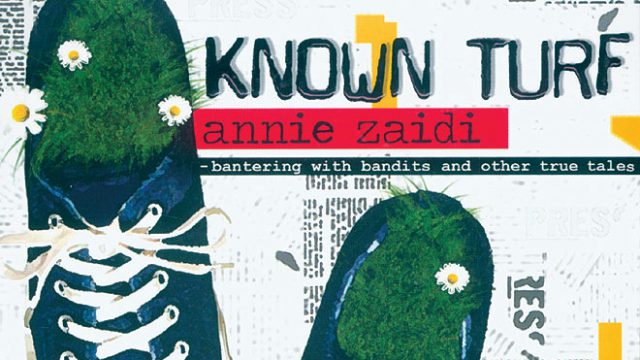The cover graphic for Annie Zaidi’s Known Turf is deceptively light-hearted. Sneakers filled with grass and daisies suggest a leisurely trek in the Swiss Alps, rather than a collection of essays about encounters with dacoits, eve-teasers, malnourished babies, corrupt public officials and victims of gang rape.
But Annie Zaidi is a journalist who brings an unusual mix of sentiment and intelligence to the hard-bitten task of being a reporter. She doesn’t mind using Bollywood cinema as a point of reference when covering bandit queens, for instance, and she still cries in fury when the guy beside her on the bus digs his elbow into her side. She considers herself a serious feminist while maintaining the pink-is-for-girls colour code, and for all her street smarts, she seems amazed that a small-town waiter can’t distinguish between regular Pepsi and Diet Coke.
Nevertheless, she has the grit to chase up stories in remote villages, the thoroughness to do the math on women’s education in India and the compassion to share moments of unspeakable grief with destitute villagers.
This is not a book for middle-aged cynics such as myself. Some of Zaidi’s observations here are bound to seem ingénue to anyone over 40 — “One of the difficult things about being a journalist is having to harden your heart a little.” (No! Never!) — but so what? There are thousands of young urban Indians who have been brought up so genteel that they sincerely believe their three-car lifestyle is within easy reach of anyone who studies hard and curtsies nicely.
A book like this, written by someone who may once have been just as sheltered as they were, will resonate with Generation iPad in a way that a more world-weary account would bypass entirely.
Known Turf is a warm, heartfelt and honest book, and for that I give Zaidi high marks.




